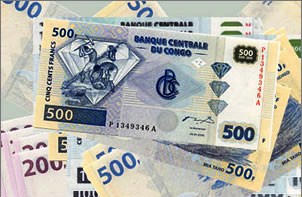By
Sylvain Muyali
Following publication of the first edition in December 2013, the World Bank announces the second edition of its report monitoring the economic and financial situation of the Democratic Republic of the Congo.
The relatively sound macroeconomic and financial situation in the DRC, the whole question of the sustainability of results, significant vulnerabilities facing the DRC and what to do to meet the country’s economy, are the various important points mentioned in the new report.
During a media briefing earlier this week at the headquarters of the World Bank in Kinshasa, the Chief Economist and Resident Representative Emmanuel Pinto Moreira explained the essence of this report which will be presented later today, Wednesday, December 10, 2014, in the nation’s capital. In his speech, he said that the DRC, which wants to be an emerging country by 2030, must meet a number of requirements for the results to be sustainable, including the continuation of the whole stabilization and reform policy, especially reforms of State Owned Enterprises (SOE).
Mr. Moreira has also confirmed that the DRC faces major weaknesses and vulnerabilities. What needs to be done? First define a development strategy to be unifying, single and consistent, said the World Bank’s resident representative in the DRC. He also argued that there should be strong institutions and to provide the Government of the Republic of the human and material resources.
Emmanuel Pinto Moreira specifically stated that it must also, and above all, consolidate macroeconomic stability, accelerate structural and institutional reforms, and that a better mobilization of mining revenues is needed.
For his part, the chief economist of the Department of Poverty Reduction and Economic Management Africa Region of the World Bank, Dr. Chadi Bou Habib, said that the DRC has experienced economic growth with revenues ranging from 7.8, and 9 percent, as controlled inflation and reserves acceptable trade. This growth, he says, depends on the mining sector and trade, thanks to the different revisions.
The informal sector, he added, is important since it allowed a reassessment of the country’s GDP figure. And in this Congolese economy, added Mr. Chadi Bou Habib, infrastructure is a serious bottleneck. It also recommended revenue mobilization in the natural resources sector.
To do so however would require the revision of the mining code, its implementation or application, casting recipes, and more than anything for the governance in the sectors to be strengthened. But where does one start? Mr. Chadi Bou Habib evokes among others, accessibility, improved water availability and the mines.
From the report on the economy
The report is based on two main points: “Strengthening the state and transforming the mineral wealth growth vector of development and national cohesion.” The first report is of recent economic developments and the sociopolitical context in the DRC.
To do this, the report indicates that economic growth remains strong, driven by the dynamics of the mining sector. Also, a better mobilization of the resource sector’s potential would support the level of reserves and maintaining macro-fiscal sustainability. This mobilization is essential to give the state the material means to ensure its sovereignty and development of the country and its political and social cohesion.
Explanations of five points
The first explains how the DRC continues to show strong growth thanks to the renewed dynamism of mining activities. However, the second point, which notes the growth in mining and natural resources, does not translate into a strong mobilization of revenue for the government.
Third, the inadequacy of revenue is a difficult choice between reducing spending and social infrastructure to maintaining macroeconomic stability. Greater revenue mobilization, strengthened by donor programs could ensure macroeconomic sustainability without compromising development goals, says the fourth point.
Fifth, better revenue mobilization is needed to improve the ability of the state to confront the social and national fragility.
The second aspect to which this report is based focuses on the challenges and opportunities of the DRC in the light of the household survey results. This indicates that synergies between infrastructures, mining and social indicators point to the need for an integrated public action to improve human development indicators.
In addition to this, road infrastructure increases accessibility for all, including social services, and allows the improvement of living standards, underlining the importance of public investment. The mines also have an ambivalent effect: they allow an increase in living standards, but can also generate a lot of negative external costs, hence the importance of the State’s regulatory role.



No Comments Yet!
You can be first to comment this post!